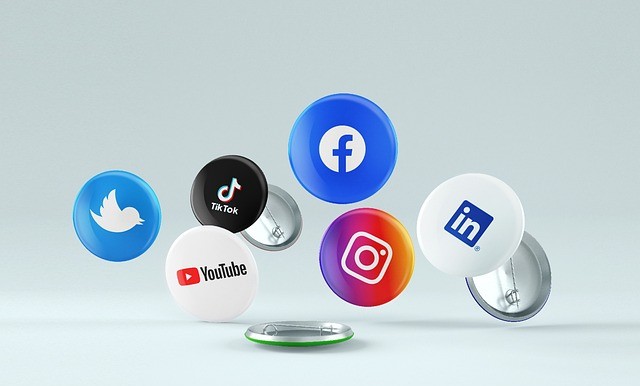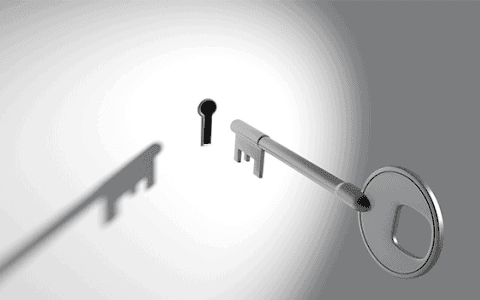In today's hyper-connected world, social media platforms like Facebook, Instagram, Twitter, and YouTube are more than just tools for communication. They have seamlessly integrated into the fabric of our daily lives, shaping how we interact, share, and perceive the world around us. While these platforms offer unprecedented levels of connectivity and a space for self-expression, their pervasive use comes with significant implications for our mental wellbeing.
The need for social validation and the fear of missing out (FOMO) drive the social media users to constantly check their feeds, notifications, and messages. Many users find it challenging to stay offline for extended periods, with nearly a third of them accessing their accounts over ten times a day.
Isolation and Erosion of Interpersonal Relationships
There is no doubt that social media has made staying connected to one another easier. However, on the flip side, social media has also significantly contributed to feelings of loneliness and isolation. A survey by Knowledgetics Research conducted on digital usage among teens and young adults reveals that nearly 4 out of 5 people have felt isolated or alone at some point in the last three months. Additionally, nearly 34% of social media users experience negative emotions like sadness, depression, anxiety, and exhaustion after social media usage.
This heightened usage has made its significant contribution towards the erosion of interpersonal relationships. Nearly half of the population engages in less than two hours of quality, non-digital interaction with their family each week, while two-thirds of individuals spend fewer than two hours in person with their friends. The decline in quality in-person interactions may hinder the development of strong, lasting bonds and a supportive social network.
The Pressure to Perform
Social media often portrays an idealized version of life, where users showcase their successes, and happiest moments. This constant stream of curated content can create unrealistic expectations and pressure to perform, leading to feelings of inadequacy and low self-esteem.
Quantifying self-worth on the scale of "Likes," "Comments," and "Followers" has become a significant aspect of digital culture. For many, accumulating these metrics serves as a tangible measure of success and popularity, creating a fragile sense of identity that can lead to emotional distress.
The survey reveals that approximately 32% of users who post on social media are highly preoccupied with the number of likes, comments, and reshares their posts receive. The obsession with online approval goes beyond mere numbers; it profoundly affects individuals' sense of self-worth. The constant comparison to curated, idealized versions of others' lives often leads to feelings of inadequacy and low self-esteem.
Threat of Cyberbullying
When a sense of self-worth is tied to social media metrics such as "Likes," and "Comments,", negative comments and online harassment can have a devastating impact, making individuals more vulnerable to cyberbullying. Cyberbullies often exploit this vulnerability, using hurtful comments and public shaming to undermine their targets' self-esteem and confidence.
The anonymity that comes with the online platforms allows bullies to engage in harmful behaviour without facing immediate consequences. This anonymity can empower individuals to say things they might never say in person, amplifying the severity of the bullying.
Close to 44% of individuals have either personally faced cyberbullying or know someone who has been targeted online. This highlights the widespread nature of the problem and the urgent need for effective solutions. The effects of cyberbullying can be long-lasting, affecting not only the mental health of the victim but also their academic performance, social relationships, and overall quality of life.
Privacy Pitfalls in Social Media
The pervasive use of social media platforms raises significant concerns about privacy. With an increasing amount of personal information shared online, high-profile data breaches and misuse of personal data by social media companies have only heightened these fears. The implications of privacy pitfalls extend even beyond personal discomfort. There are real-world consequences such as financial fraud, and unauthorized use of personal images and information. For example, location-sharing features can inadvertently reveal a user's whereabouts, making them vulnerable to stalking or other malicious activities.
There is also a notable divide in comfort levels when it comes to sharing social media experiences with friends and family. Over half of the population enjoys sharing their social media experiences with friends, finding it a natural extension of their offline interactions. However, only a quarter find it easy to do so with family members. This disparity may stem from generational differences, varying levels of tech-savviness, and differing perceptions of privacy and boundaries.
The Balancing Act possibility?
While the concept of "balance" is desirable—ensuring healthy usage, safeguarding user privacy, minimizing negative impacts, and promoting positive engagement—it may be challenging to fully achieve due to:
- Algorithmic influence: Social media platforms use algorithms that prioritize engagement over content well-being, often promoting sensational or divisive material.
- User behavior: People’s interactions with social media vary widely, making it hard to regulate how it's used across different demographics and cultures.
- Regulation and control: Laws and guidelines are still catching up with technological advancements, making it difficult to implement consistent rules for balance.
Some of the immediate steps that can be taken to mitigate the negative impacts of social media on mental wellbeing are:
- Set Time Limits: Limiting daily social media usage can help reduce dependence and free up time for other meaningful activities.
- Curate Your Feed: Following accounts that promote positivity and unfollowing those that trigger negative emotions can create a healthier online environment.
- Engage in Offline Activities: Prioritizing face-to-face interactions, hobbies, and physical activities can help maintain a balanced lifestyle.
- Seek Support: For those struggling with mental health issues related to social media, professional support and counselling can provide valuable guidance.
By fostering a mindful and balanced approach to social media usage, individuals may be able to mitigating its potential harms. Prioritizing mental health, privacy, and building strong, supportive relationships remains essential as we navigate the digital landscape of this modern era.





